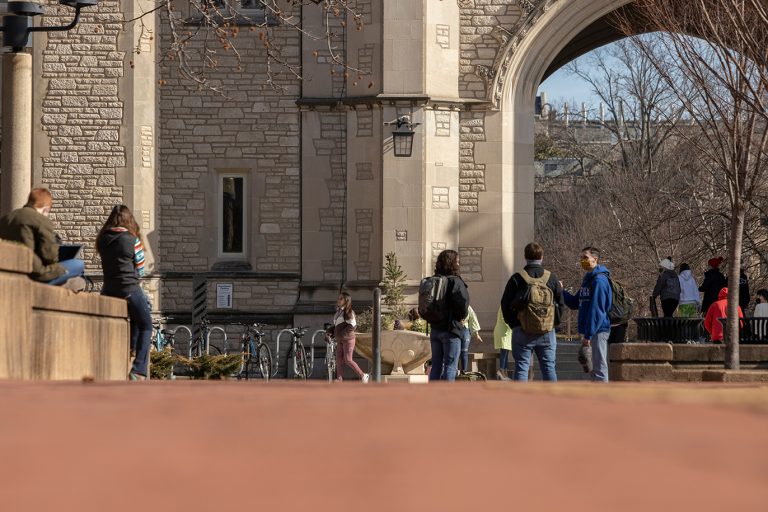Bouncing back

By Jesse Berlin
Last semester, Mizzou students returned to in-person learning after more than a year of virtual and hybrid classes. For some, the change was disorienting, resulting in a less-than-ideal fall semester.
“Transitions can be hard for anyone,” said MU Counseling Center counselor Michael Kaplan. “They require changes in behavior, changes in thinking, the ability to adapt.”
To ease this transition, the MU Counseling Center offers support groups such as Coping with Change, in which students discuss reacclimating to in-person activities, among other topics.
Helping students adjust is part of the job for Kristina Bradley, an academic advisor in the Missouri School of Journalism.
“My main mission is student success,” she said. “If I’m helping a student meet what their personal definition of success is, then I’m doing my job.”
For students who want to bounce back academically, Bradley recommends Tiger Tutors, a free service of the Learning Center that helps students review and learn concepts in more than a dozen areas. The Learning Center also offers study plan consultants, who can help students create strategies to reach their academic goals.
After a tough fall semester, some students may be questioning if their majors are a good fit or wondering what they will do after graduation. Bradley sends them to the Career Center, where they can explore majors and careers, brush up their résumés, work on their interviewing skills, search for internships, and find part-time jobs.
For students experiencing significant difficulties related to health, personal and family emergencies, financial issues or other areas of concern, there’s the Care Team, where care coordinators like Alaina Karaffa provide one-on-one support
“We encourage them to reach out and advocate for themselves and we provide follow-up to see how the outreach went,” Karaffa said.
Karaffa recommends students who are struggling meet with the involvement ambassadors to discuss involvement opportunities on campus. Students who get involved do better in class, feel more connected to campus, and are more likely to graduate.
For students who face difficulty paying for their education, Karaffa recommends contacting the Office of Financial Aid to inquire about scholarships or grants. She also recommends the Office for Financial Success, which offers one-on-one counseling on budgeting, financial goal setting and more.
Beyond campus resources, it’s important to surround yourself with good listeners. “We all need time to decompress and spend time with people that we care about,” Bradley said. “Having a good support network is really important.”
Kaplan emphasizes the importance of self-care: “Getting good sleep, eating regularly, getting some exercise, spending some time every day just having fun, doing something that you enjoy,” he said.
“College is a challenging time for a lot of students,” Kaplan said. “We want everybody to succeed as best they can.”